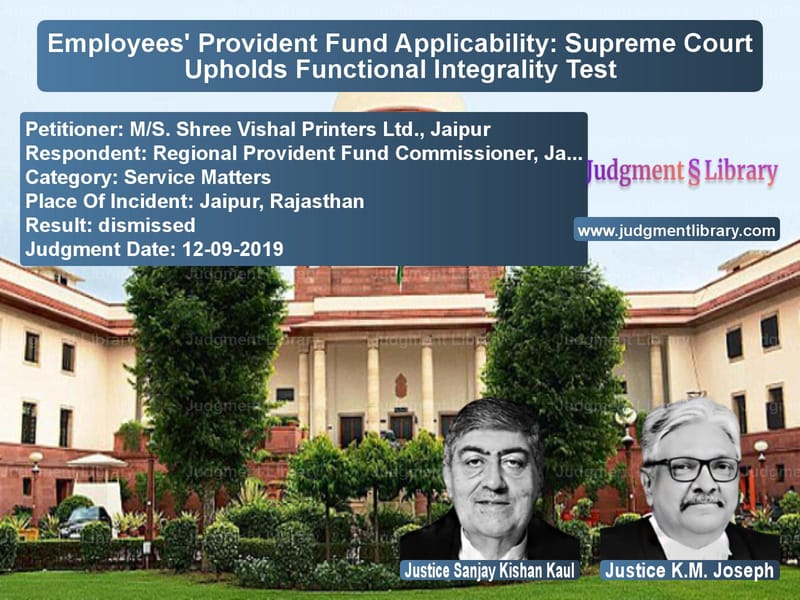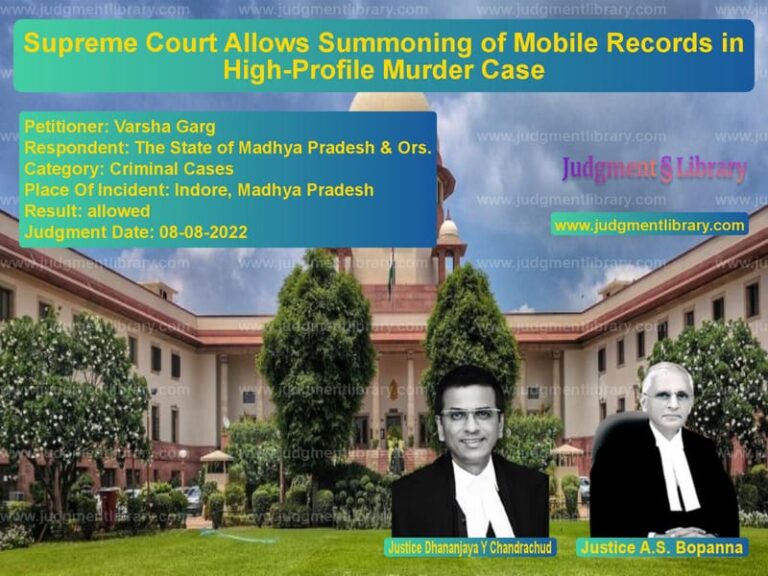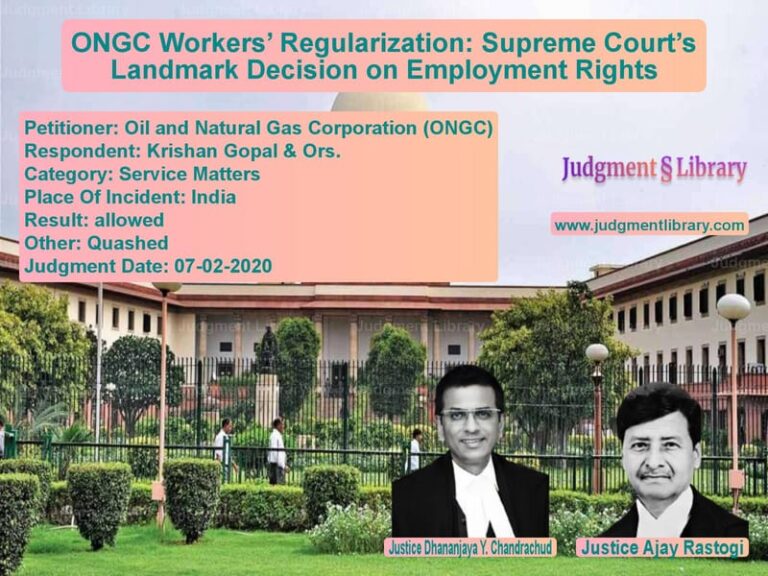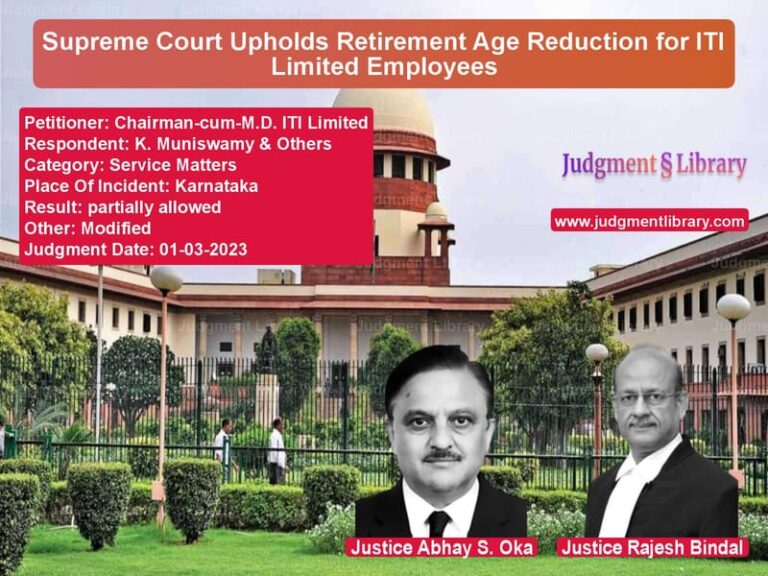Employees’ Provident Fund Applicability: Supreme Court Upholds Functional Integrality Test
The case of M/S. Shree Vishal Printers Ltd., Jaipur vs. Regional Provident Fund Commissioner, Jaipur & Anr. revolved around the applicability of the Employees’ Provident Funds and Miscellaneous Provisions Act, 1952 (EPF Act) to newly established businesses. The Supreme Court, in its judgment on September 12, 2019, upheld the functional integrality test and ruled that the appellant companies could not evade provident fund obligations.
Background of the Case
The Employees’ Provident Funds Act was introduced to provide security to workers, ensuring social welfare in organized industries. The Act initially exempted new establishments for five years, which was later reduced to three years, before the exemption was completely removed in 1997.
Three companies—Shree Vishal Printers Ltd. (SVPL), Times Publishing House Ltd. (TPHL), and Bennett, Coleman & Co. Ltd. (BCCL) Jaipur—claimed they were independent establishments and sought exemption from EPF contributions. However, the Regional Provident Fund Commissioner (RPFC) ruled that they were part of the larger BCCL Mumbai group and were not eligible for exemption.
Legal Issues and Arguments
Arguments by the Appellants:
- The companies were separately registered legal entities under the Companies Act.
- There was no commonality in directors, shareholders, or finances between them.
- Each company had independent balance sheets, profit-and-loss statements, and employee structures.
- There was no transfer of employees between BCCL Mumbai and the appellants.
- The business agreements were structured on outsourcing principles.
Arguments by the Respondents:
- The three companies shared office space and infrastructure.
- Employees of TPHL and SVPL followed instructions from BCCL Mumbai.
- Official documents of SVPL and TPHL were issued on BCCL letterheads.
- There was complete functional integrality between the companies.
Supreme Court’s Observations
The Supreme Court relied on key judgments that defined how to determine whether separate establishments were functionally part of a single entity. The Court applied the principles from:
- Management of Pratap Press v. Delhi Press Workers’ Union – Stated that the most important test is functional integrality, meaning interdependence such that one unit cannot exist without the other.
- Associated Cement Companies Ltd. v. Workmen – Identified factors like unity of ownership, financial control, and unity of employment.
- L.N. Gadodia & Sons v. Regional Provident Fund Commissioner – Stated that separate registrations under different laws do not automatically mean independent entities.
Supreme Court’s Ruling
The Supreme Court held that:
- All three companies were functionally integral to BCCL Mumbai.
- The appellants’ claim of being independent establishments was an attempt to bypass EPF obligations.
- The exemptions under Section 16(1)(d) of the EPF Act were not applicable.
- The appeals were dismissed, and costs were imposed—Rs.50,000 on BCCL Jaipur and Rs.20,000 each on TPHL and SVPL.
Conclusion
The Supreme Court reaffirmed the importance of the functional integrality test in determining EPF applicability. The ruling prevents businesses from circumventing labor welfare laws through artificial corporate structures, ensuring that employees receive the social security benefits they are entitled to.
Petitioner Name: M/S. Shree Vishal Printers Ltd., Jaipur.Respondent Name: Regional Provident Fund Commissioner, Jaipur & Anr..Judgment By: Justice Sanjay Kishan Kaul, Justice K.M. Joseph.Place Of Incident: Jaipur, Rajasthan.Judgment Date: 12-09-2019.
Don’t miss out on the full details! Download the complete judgment in PDF format below and gain valuable insights instantly!
Download Judgment: MS. Shree Vishal Pr vs Regional Provident F Supreme Court of India Judgment Dated 12-09-2019.pdf
Direct Downlaod Judgment: Direct downlaod this Judgment
See all petitions in Employment Disputes
See all petitions in Contractual Employment
See all petitions in Judgment by Sanjay Kishan Kaul
See all petitions in Judgment by K.M. Joseph
See all petitions in dismissed
See all petitions in supreme court of India judgments September 2019
See all petitions in 2019 judgments
See all posts in Service Matters Category
See all allowed petitions in Service Matters Category
See all Dismissed petitions in Service Matters Category
See all partially allowed petitions in Service Matters Category







